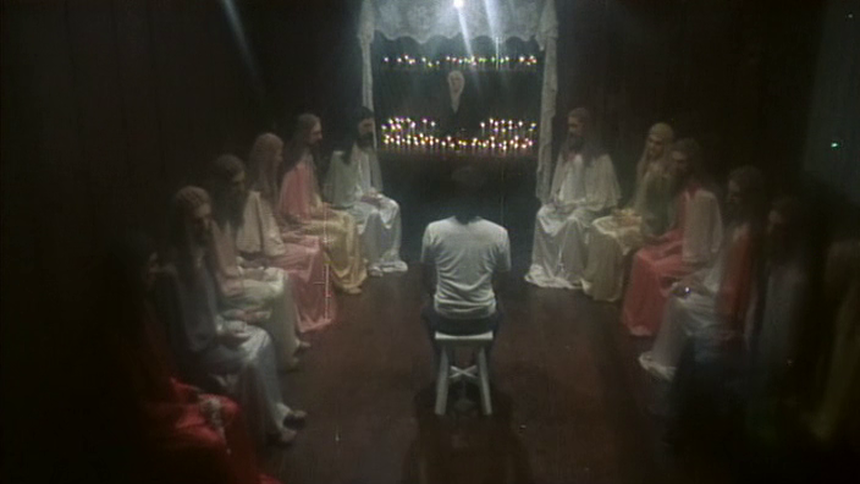|
Imbued with such a quiet sense of mystery and menace, Mike De Leon's Itim is a fascinating foray into spiritual horror that beautifully invokes ecclesiastical principles of internalized guilt and repentance to deliver a highly atmospheric and compelling experience ripe with subtextual investigations beyond its familiar genre conception. The directorial vision and overall aesthetic employed by De Leon routinely project a strict dichotomy between darkness and light. This visual delineation evokes a continuous, atmospheric sense of unease and uncertainty in the viewer. Darkness envelopes much of the film. Light routinely pierces through this darkness. The spiritual and material world feel intertwined to the viewer due to these precise visual constructions - it's the protagonists who struggle to see it as they search for answers. Perhaps a facile comparison, but I routinely found myself reminded of some of Kiyoshi Kurosawa's work when watching De Leon's Itim. The interior spaces induce dread and a continuous sense of unease - darkness lurks in nearly every interior space, the spiritual world lives in the same spaces unseen. A haunting experience imbued with Christian theology, Itim's familiar conception - the spiritual world seeks help from the living in order to find a sense of closure from past transgression which has gone unpunished - only tells half the story here, as De Leon crafts a memorable tale of such quiet, understated menace that feels expansive in its investigations into entanglement between communal and individual, exposing both the exterior - community and generational trauma, the necessity for closure - and the interior - internalized guilt and personal repentance - effects such unresolved pain can place on the living.
0 Comments
Leave a Reply. |
AuthorLove of all things cinema brought me here. Archives
June 2023
|

 RSS Feed
RSS Feed
